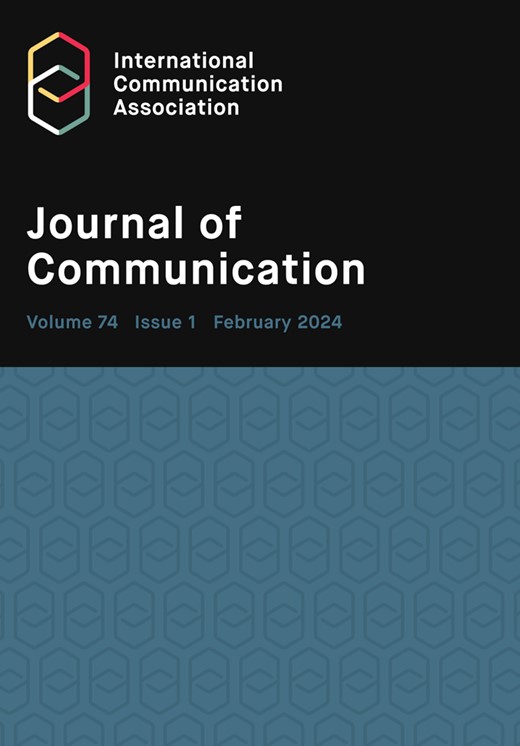隐私演算、隐私悖论与语境崩溃:对通信隐私研究中三个关键研究的复制
IF 5.5
1区 文学
Q1 COMMUNICATION
引用次数: 0
摘要
自从社交网站出现以来,研究人员一直在调查用户如何以及为什么在网上分享个人信息。然而,个别发现的可重复性仍不清楚。我们通过密切复制三项开创性研究来解决这一差距:Krasnova等人(2010)对隐私演学的研究,Vitak(2012)对情境崩溃影响的分析,以及Dienlin和Trepte(2015)对隐私悖论的调查。虽然只有32.5%的原始效应在三个研究中完全重复,但67.5%是显著的,并且与原始方向一致。尽管总体上复制成功,但突出的负面隐私担忧和自我披露联系并没有复制,而是变成了积极的。附加的规格曲线分析表明,这种关系的强度取决于各种分析决策。这些发现为基于调查的隐私研究的可复制性提供了见解,突出了复制在动态研究领域中的作用。本文章由计算机程序翻译,如有差异,请以英文原文为准。
Privacy calculus, privacy paradox, and context collapse: A replication of three key studies in communication privacy research
Since the advent of social network sites, researchers have investigated how and why users share personal information online. Yet, the replicability of individual findings remains unclear. We addressed this gap by closely replicating three seminal studies: Krasnova et al.’s (2010) study on the privacy calculus, Vitak’s (2012) analysis of the impact of context collapse, and Dienlin and Trepte’s (2015) investigation of the privacy paradox. While only 32.5% of the original effects replicated exactly across the three studies, 67.5% were significant and in line with the original direction. Despite this overall replication success, the prominent negative privacy concerns and self-disclosure link did not replicate and became positive instead. Additional specification curve analyses revealed that the strength of this relationship is contingent on a variety of analytical decisions. The findings offer insights into the replicability of survey-based privacy research, highlighting the role of replication in a dynamic research landscape.
求助全文
通过发布文献求助,成功后即可免费获取论文全文。
去求助
来源期刊

Journal of Communication
COMMUNICATION-
CiteScore
11.60
自引率
5.10%
发文量
41
期刊介绍:
The Journal of Communication, the flagship journal of the International Communication Association, is a vital publication for communication specialists and policymakers alike. Focusing on communication research, practice, policy, and theory, it delivers the latest and most significant findings in communication studies. The journal also includes an extensive book review section and symposia of selected studies on current issues. JoC publishes top-quality scholarship on all aspects of communication, with a particular interest in research that transcends disciplinary and sub-field boundaries.
 求助内容:
求助内容: 应助结果提醒方式:
应助结果提醒方式:


